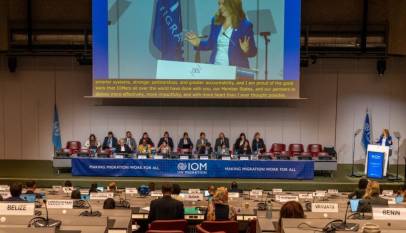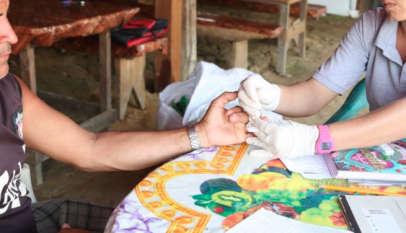How Renovation of Healthcare Facilities by MNCH2 is improving uptake of RMNCH services in Kano state
The 5-year UK-DFID-funded Maternal, Newborn and Child Health the MNCH2 programme has renovated 112 healthcare facilities at the cost of over NGN 0.6 billion aimed at improving access to healthcare service especially at the lower tier of care services
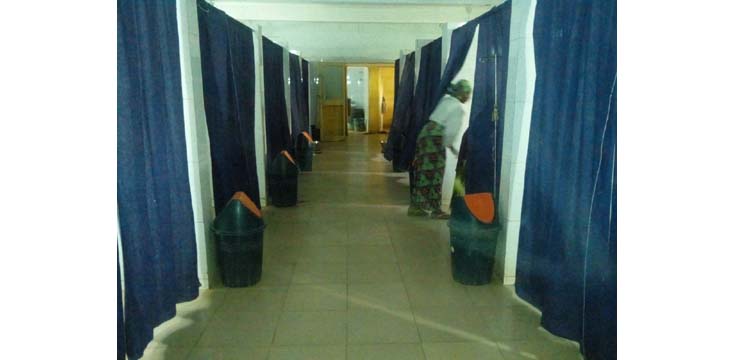
The 5-year UK-DFID-funded Maternal, Newborn and Child Health (MNCH2) programme working to save lives and improve the quality of life for women and children in northern Nigeria is achieving its mission by amongst others, supporting state governments in the region to improve condition of infrastructure at primary and secondary healthcare facilities.
This is considering the momentous dearth of infrastructure at majority of especially Primary Healthcare Centres (PHCs) which are the closest healthcare facilities to people at the grassroots particularly those in hard-to-reach rural communities, hence, whose functionality is very critical in achieving Universal Health Coverage (UHC).
Thus, since inception in 2015, the MNCH2 programme has renovated scores of primary and secondary healthcare facilities and medical stores across the 44 LGAs of Kano State, in line with its mission of broadening the coverage of integrated, cost-effective and quality RMNCH services which is successfully bridging the huge inequalities in access to healthcare services for women and children in the state.
Specifically, the MNCH2 programme has renovated 112 healthcare facilities including 5 medical stores of the Kano State Primary Healthcare Management Board (KSPHCMB) and another 5 medical stores of the Kano State Drugs & Medical Consumables Supply Agency (DMCSA) aimed at achieving improvement in healthcare service delivery especially at the lower tier of care services.
The renovation work carried out across the various facilities had greatly improved environmental and hygienic condition in the facilities and therefore, resulted in increased turn-out of women and children as well as boosted the moral of healthcare staff and enhanced their productivity. Thus far, the MNCH2 programme had been spent a total of NGN 626, 052, 459.29 on renovation of primary and secondary healthcare facilities as well as medical stores in Kano state.
“The renovation work by MNCH2 has improved uptake of maternal and child healthcare services across the renovated facilities; they have now become more active than before. More people are now coming to access services which have reduced maternal and newborn deaths. Really, MNCH2 has positively impacted on healthcare services in the state,” says Liti Gwarzo Abdullahi, Director, Planning, Research and Statistics (DPRS) at the Kano State Ministry of Health.
MNCH2’s renovation work has successfully transformed the labour and delivery unit at Murtala Muhammed Specialist Hospital (MMSH), the largest healthcare facility in the state, which has resulted in increase of pregnant women’s turn-out at the facility, according to Iya Halliru Haruna, the matron in charge of the facility’s labour and delivery unit.
“MNCH2 has transformed the unit by changing the louvers of our windows, tiling the entire floor and more importantly, partitioning the labour room into cubicles, for the sake of privacy. Before now, pregnant women had to deliver in the open which wasn’t very appropriate. Again there are certain invasive procedures we do carry out on women in the labour room which might scare other women in the room if they are carried out openly. All these have been solved with the partitioning such that now every woman has her own cubicle,” says Matron Iya.
She states that the partitioning also meant the facility’s male technicians can at any time go into the unit to conduct repair work without violating the privacy of any woman adding that MNCH2 had also constructed seepages in each of the cubicles such that after delivery, blood could easily be washed and drained away, which has also significantly improved environmental hygiene in the unit, all of which she says encourages more women to come and deliver at the facility.
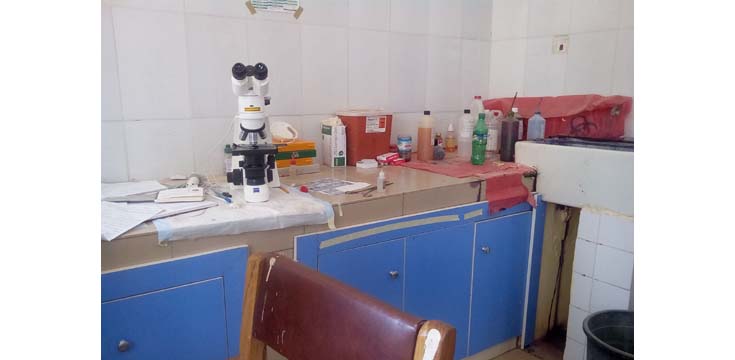
Sani Abdullahi Bagwai is the Primary Healthcare (PHC) Coordinator of Gwale LGA who says MNCH2 had supported renovation work in a number of PHCs across his LGA including the ones at Jaen, Dorayi Babba as well as the PHC at Dorayi Karama which he said, was “particularly in a poor condition”. The renovation work carried at the facility included repainting, repair and replacement of its roofings as well as a provision of separate units for OPD, labour, pharmacy and RI, among others.
“Women (especially here in the city) are discouraged from coming to healthcare centers that are in bad condition hence renovation encourage them to come and access services like ANC and immunization for their children. Also, health workers require good environment to be productive: renovation encourage both staff and clients at PHCs,” reveals Bagwai.
Rabi Dahiru is the Officer In-Charge of Jaen PHC, one of the PHCs renovated by MNCH2 in Gwale LGA who says MNCH2 had given their facility “an entirely new look”. “They have greatly complimented our efforts by sponsoring the complete renovation of the facility: they totally repainted the entire facility and renovated our laboratory and also renovated our pharmacy which was damaged as a result of fire outbreak.
“They repaired and replaced our damaged doors and windows as well as water pumps and wash hand basins as well as repaired our damaged roofing. They built a separate DOT unit for us, renovated our labour room as well as rebuilt our perimeter fencing and sun shed for women when they are here for ANC services,” narrates Dahiru.
Kabiru Ado Jaen, the Chairman of the Facility Health Committee (FHC) of the Jaen PHC said the facility had in the aftermath of the renovation work by MNCH2 and introduction of 24-hour healthcare services (which made it the only healthcare facility in entire Gwale LGA providing 24-hour services) witnessed influx of patients’ particularly women and children.
The statistics of successful deliveries shows that whereas only 37 deliveries were recorded in October 2017 – prior to the introduction of 24-hour services – the figures had quadrupled in subsequent months such that in November, 137 successful deliveries were recorded while 197 and 188 deliveries were recorded in December and January 2018, respectively.
The story is the same at Tsanyawa LGA of Kano State where until the renovation work by MNCH2, the Tsanyawa Comprehensive Health Centre was in a state of disrepair and poor condition such that some critically-important units such as the ANC and delivery units had to be taken out of the facility to somewhere else.
“Now things have been centralized which has improved efficiency of services. We now have a separate room serving as laboratory and another room serving as RI unit. The outcome is that we now have increased patients turnout,” says Musa Miko, the Essential Drugs Officer for Tsanyawa LGA.
Hassan Garba is the Officer-In-Charge of the Tsanyawa facility who adds that MNCH2 had also renovated their toilets which were hitherto dysfunctional and which meant Open Defecation (OD) was rampant, posing serious threat to personal and environmental hygiene in the facility. “A dental unit has now been provided while our pharmacy has been expanded for which there is a remarkable increase in patients turn-out,” he adds.
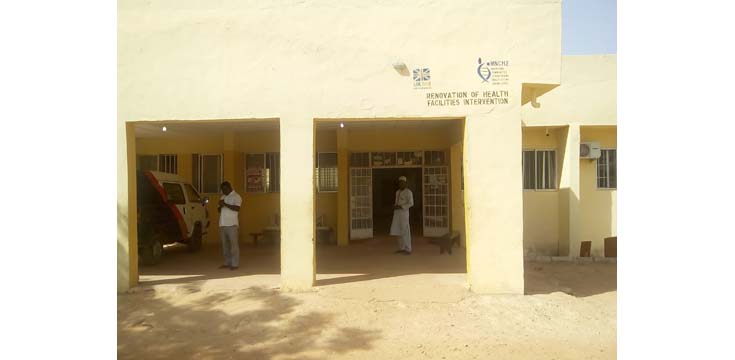
“For us, MNCH2 is second only to the government in Kano when it comes to supporting healthcare sector in the state in the areas of renovation, drugs and equipment supply,” says Usani Adamu, the Primary Healthcare (PHC) Coordinator of Kiru LGA where similar renovation work had also been carried out by the MNCH2 programme including at the Kiru Comprehensive Health Centre. “Other than the Kiru facility the PHC in Kogo is also being renovated. People like new things and so are attracted to the Kiru facility; we are happy with MNCH2.”
Usaini Tudun Wada is the deputy Officer-In-Charge of the Kiru Comprehensive Health Centre who says MNCH2 completely repainted the entire facility and renovated its labour room and laboratory by changing the floor and wall tiles which he said had not only increased patient turnout but also motivated and increased health workers’ confidence.
“Before the renovation work at this facility we had to mobilize women to go round to mobilize pregnant women from across the nooks and crannies of the LGA. Now that the facility has been renovated and repainted it has become very attractive to them and so they are coming on their own – we don’t have to do much mobilization,” says Haruna Alhaji Kiru, the Chairman of the Facility Health Committee (FHC) at the Kiru facility.



